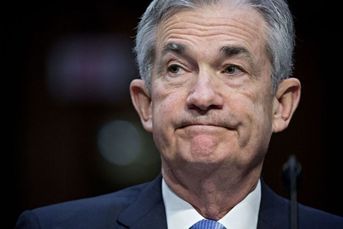What Donald Trump could do to your retirement

A bitterly debated regulation that requires financial advisers to put their clients' interests first could be derailed.
Millions of Americans struggling to save for retirement, or trying to live off their investments in old age, are hobbled each year by high fees on products recommended by financial advisers. Now, with Donald Trump’s election, a bitterly debated regulation that requires advisers to put their clients’ interests first could be derailed.
The Department of Labor ruling, set to take effect in April, was pushed by President Barack Obama and resisted by Wall Street for five years before it was established this spring. Mr. Trump hasn’t specifically referred to the regulation, known as the fiduciary rule, but unwinding what he argues is regulatory red tape was central to his campaign, and his adviser Anthony Scaramucci, founder of SkyBridge Capital, has argued that the rule should be revoked.
“It’s a bad regulation that will kill jobs and hurt the very investors it purports to protect,” Mr. Scaramucci said in an e-mail. “It should be scrapped or defanged.”
Mr. Scaramucci’s committee on Mr. Trump’s transition team will influence who is named to lead the Securities and Exchange Commission and other financial overseers. For Treasury secretary, Mr. Trump has named Steven Mnuchin, a Hollywood dealmaker and veteran of Goldman Sachs.
With compliance set to begin in April, “a new labor secretary probably will delay the regulation,” said Nathan R. Dean, government analyst for Bloomberg Intelligence. Although Mr. Trump can’t immediately dismantle the ruling — that would require drafting a new regulation rescinding the current one and allowing for a comment period — “he can ensure it’s weakened,” Mr. Dean said.
Hope Hicks, the president-elect’s press secretary, couldn’t be reached for comment.
In addition to requiring that investment recommendations be in the client’s best interest, the fiduciary rule says brokers, retirement-investment advisers and insurers must inform clients about the products’ fees and commissions. It was expected to accelerate the already substantial shift of client money into low-cost index funds and away from actively managed funds, especially those with sustained subpar performance and high fees.
Mr. Obama and consumer advocates have argued that the rule is needed to protect savers who hold some $12 trillion in Individual Retirement Accounts and 401(k) plans, the retirement savings vehicles that have mostly replaced pensions. Without it, Americans saving for retirement have been losing $17 billion a year being pushed into investments that may be a better deal for brokers than for them, according to the White House Council of Economic Advisers.
The rule was opposed by Republicans leading Congress and many Wall Street and insurance companies, including MetLife Inc. and Stifel Financial Corp. They have said its increased compliance costs will make it too expensive for financial service companies to manage money for low-income people with smaller accounts. The Securities Industry and Financial Markets Association said in a report that the $17 billion figure was derived using flawed methodology.
The rule was the first major overhaul of retirement savings regulations since the 1970s. It was meant to help consumers overwhelmed by a long list of investment choices and perhaps unaware of the profit their broker could make by offering one mutual fund over another. The Obama administration laid out an example of a worker with $100,000 in a 401(k) who rolls her savings into an IRA at age 45. Adjusted for inflation, her investment would grow to an estimated $216,000 by age 65 if it was in low-fee index funds and to just $179,000 if she was steered to high-fee mutual funds.
Supporters of the fiduciary rule point to people changing jobs, or retiring and weighing a rollover from a 401(k) to an IRA, as among the most vulnerable to advisers putting themselves first.
“That’s where the big money is,” said Barbara Roper, director of investor protection for the Consumer Federation of America in Washington, D.C. “And right now there’s a lot of incentive to encourage people to roll over even when they’d be better off staying” in a lower-cost 401(k) plan.
A postponement of the ruling under Mr. Trump would hurt middle-income retirement savers, Ms. Roper said. While wealthy investors tend to use financial advisers who already are considered fiduciaries, middle-income clients are likelier to get advice from nonfiduciaries, she said.
“They’ll be back at the mercy of advisers who are compensated and rewarded for giving advice that’s harmful to their customers,” Ms. Roper said. Middle-income savers “are the people who can least afford this,” she added.
Middle-income Americans were also an emblem of Mr. Trump’s campaign to win over economically beleaguered voters. At a rally in Cincinnati on Thursday, Mr. Trump said he would win tax cuts for the middle class. Mr. Mnuchin, meanwhile, promised “the largest tax change since Reagan.”
“The Trump administration, working with our Republican majority in Congress, should make sure this harmful, bureaucratic rule does not go into effect as planned,” Representative Jeb Hensarling, Republican of Texas and the House Financial Services Committee chairman, said on Nov. 16 in remarks at the Exchequer Club in Washington. “This is just one example of how unelected, unaccountable government hurts working people.”
Height Securities expects the Trump administration to delay the fiduciary rule’s effective date by six months to a year. Height analyst Edwin Groshans predicted in a Nov. 17 note that the rule is headed for the “guillotine.”
Learn more about reprints and licensing for this article.








